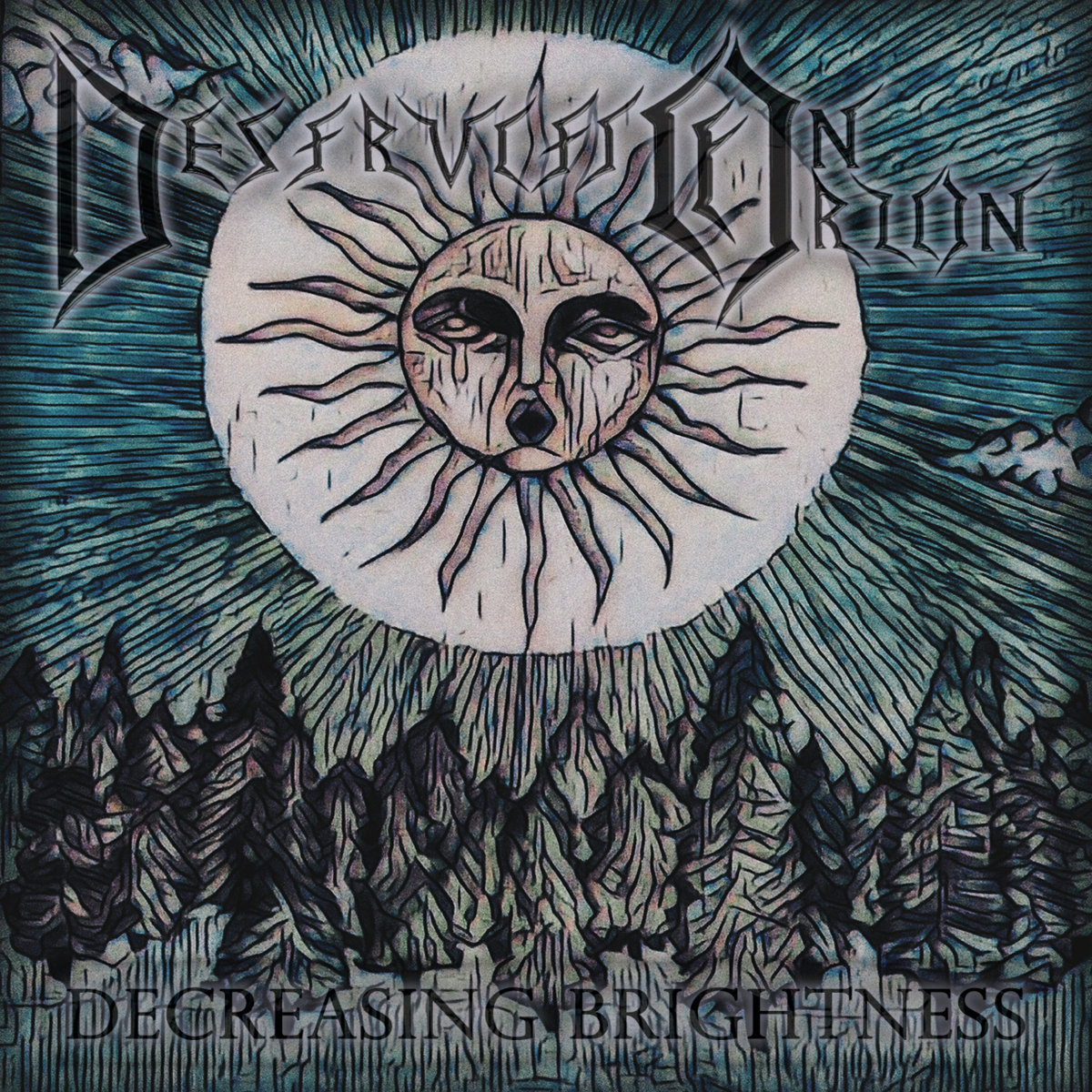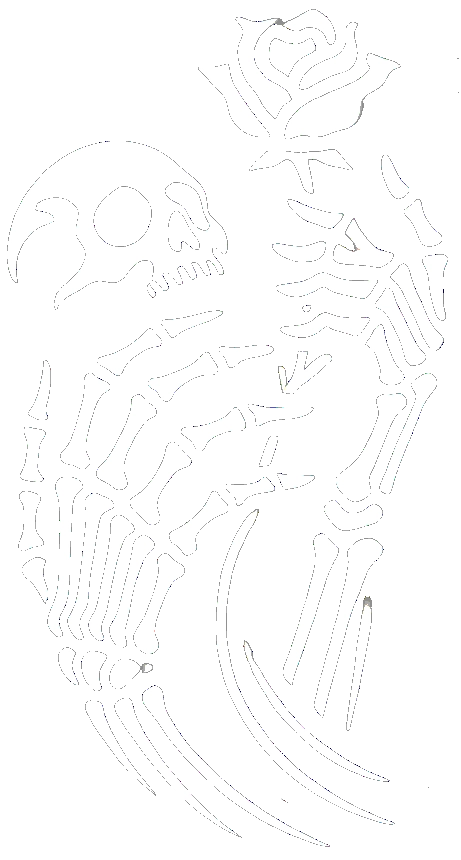The Constellation
Destruction Of Orion is a project from Sofia, Bulgaria, by sole member Orion, or Tehina Spasova as is her real name. Decreasing Brightness is their first outing and lately garnered my attention thanks to the wonderful atheistpreacher, a boon of a person also writing for this particular site. Apart from being bookended by a short intro and outro, the album’s concept is exactly what one could expect from the hints given by band name and title: each of the seven songs is named after one of the stars of the constellation Orion, arranged from brightest to darkest, perhaps metaphorically telling the listener of said stars’ fate, impending doom, or mournful end. I am aware that we are talking funeral doom here, but this might be the appropriate spot for a miniscule trigger warning, as the lyrics throughout Decreasing Brightness are uniformly dark, to say the least. Their emotional intensity and trauma does not ramp up throughout the album; instead it is just plain, existential dread and self-loathing from the beginning. Thankfully, society becomes more and more aware of the fact that mental health is indeed not a joke and should be taken not any less serious than physical health, so I would deem it irresponsible to not point that factor out – especially since the vocals are of such mesmerising, guttural beauty that the listener becomes incentivised to look up the lyrics. If you do so and notice yourself relating to them not only on an artist-appreciating, but a personal level, please consider getting help.
A Journey Through Orion’s Stars
The exhibit’s seven “real” tracks just surpass the one hour mark, with the shortest just shy of seven minutes and the longest cut clocking in at around ten and a half. I am highlighting this for a specific reason: throughout the whole album, only basic, simplistic ingredients are being used. Riffs are sparse and always used for what may seem too long on paper. In fact, I saw myself writing down ‘too long’ in my notes quite a few times – as if creating a very exaggerating dating site profile –, yet I still found myself return to the songs again and again, sitting and listening in awe each and every time whilst slowly crossing out my written-down gripes one after another. Yes, the drum patterns are simple and minimalistic; the song structures are straightforward and very similar; and the vocals can be considered one-dimensional and monotonous. But all of the instruments (vocals included), all of the patterns are used to great effect. Only seldom are there moments where it truly feels like something is being extended for too long – and ironically, these are always passing quickly. Not least because Orion has got an ace up their sleeve: the excellent usage of piano.
Proper opener ‘Rigel’s Fall’ introduces the piano right at the beginning – a mournful, fragile melody accompanied by wonderful, ethereal pad synths and guitar both reminiscent of genre veteran The Howling Void (think ‘Nightfall’ era) creates a wondrous, ephemeral atmosphere; a gossamer veil resolutely torn asunder by the aforementioned, hellish death growls. Even for genre standards, these are exceptionally low and rough. Whether their raspy sound was a stilistic choice or they are still being practised is difficult to say, yet they are a great fit for the bleak instrumentation, underlining the profound sorrow perfectly. After the guitar’s presence takes over towards the end, its mourning melody the soundtrack to an inconsequential passing of the protagonist, the song closes out with the fragile piano and pad synths again, sending shivers down my spine every time. It is a tremendous first impression; with the piano always present, but reluctant, therefore never seeming even remotely gimmicky.
Follow-up ‘Betelgeuse’s End’ marks the song’s centre by the use of soft, angelic and outerworldly clean vocals, also delivered by Orion. These create a moment of peaceful floating, not one of relief though, as they are still heavy on the heart. I cannot put my finger on exactly why, but the song’s ending always comes a bit too abruptly for me, perhaps because of the stunning beauty of its central part. ‘Bellatrix Shall Perish’ is another example of how minimalistic yet mesmerisingly good Orion’s songwriting is: with the only prospect being a nameless gravestone and serenity through suicide, the song oozes forlornness and a deep, weary yearning for eternal rest. Musically, this is transported through monotonous riffing and a quiet, desolate interlude. Yet, there is no room for boredom – the song’s form mirrors what is conveyed via the lyrics. What a gambit!
These are the elements that make up Decreasing Brightness, and they are carefully and professionally arranged – obviously to varying, but mostly high, degrees of success. ‘Alnitak’s Passing’ is another highlight for me, its atmospheric and dramatic opening invoking pictures of a slowly falling meteor in my mind’s eye. The lyrics are harrowing, portraying a miserable, failed existence. From this track on until proper closer ‘Mintaka’s Doom’, the guitar seems more centered, ever and anon entering weeping territory, adding a nice bit of texture to the songs. ‘Farewell to Saiph’ will have the riff machine tear open your lacrimal ducts after cutting through a calm passage consisting only of keys and piano. The way everything flows and bleeds into each other is extremely compelling, creating a phenomenally strong trinity to close out the album.
A Guiding Star of Funeral Doom
Decreasing Brightness is an excellent reminder that to create a compelling, marvelous work of art, one does not need to tap into flashy techniques or exotic instrumentation. Yes, the piano adds a lot to it – but it feels natural, like it should be part of funeral doom per se. Orion crafted what is one of the strongest funeral doom records of 2024, and delivered some of the strongest death growls (and most angelic clean vocals) I have ever had the pleasure of hearing. Should you read this, I sincerely hope that those lyrics are just that – lyrics – and you are doing well. May Orion never be destroyed!

